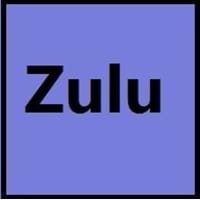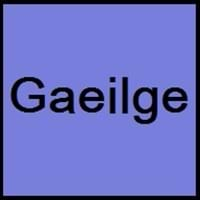Zulu and Irish
Countries
South Africa
European Union, Ireland
National Language
South Africa
Ireland
Second Language
Botswana, Lesotho, Malawi, Mozambique, Swaziland, Zimbabwe
Ireland
Speaking Continents
Africa
Europe
Minority Language
Not spoken in any of the countries
United Kingdom
Regulated By
Pan South African Language Board
Foras na Gaeilge
Interesting Facts
- The meaning of word "Zulu" means "Sky"and Zulu was the name of the ancestor who founded the Zulu royal line in about 1670.
- Zulu language has many loanwords borrowed from Afrikaans and English Languages.
- In Irish language, there are no exact words for "yes" or "no".
- There are different set of numbers for counting humans and another set for counting non-humans in Irish Language.
Similar To
Xhosa Language
Not Available
Derived From
Not Available
Not Available
Alphabets in
Zulu-Alphabets.jpg#200
Irish-Alphabets.jpg#200
Writing Direction
Not Available
Left-To-Right, Horizontal
Thank You
Ngiyabonga
Go raibh maith agat
How Are You?
unjani
Conas atá tú ?
Good Night
okuhle ebusuku
Oíche mhaith
Good Evening
okuhle kusihlwa
Tráthnóna maith duit
Good Afternoon
okuhle ntambama
Tráthnóna maith duit
Good Morning
okuhle ekuseni
Dia dhuit ar maidin
Please
Ngiyacela
le do thoil
Sorry
Ngiyaxolisa
Tá brón orm
I Love You
Ngiyakuthanda wena
Is breá liom thú
Excuse Me
Uxolo
Gabh mo leithscéal
Dialect 1
Qwabe
Connacht Irish
Where They Speak
Gabon, South Africa
Connacht
Dialect 2
central KwaZulu-Natal Zulu
Munster Irish
Where They Speak
Georgia, South Africa
Munster
Dialect 3
Ndebele
Ulster Irish
Where They Speak
Zimbabwe
Ulster
Speaking Population
Not Available
Native Name
isiZulu
Gaeilge (na hÉireann) / An Ghaeilge
Alternative Names
Isizulu, Zunda
Erse, Gaeilge, Gaelic Irish
French Name
zoulou
irlandais moyen
German Name
Zulu-Sprache
Mittelirisch
Pronunciation
Not Available
[ˈɡeːlʲɟə]
Ethnicity
Zulu people
Irish people
Language Family
Niger-Congo Family
Indo-European Family
Subgroup
Benue-Congo
Celtic
Early Forms
urban Zulu
Primitive Irish, Old Irish, Middle Irish, Classical Irish, Irish
Standard Forms
Deep Zulu
An Caighdeán Oifigiúil
Language Position
Not Available
Signed Forms
Not Available
Irish Sign Language
Scope
Individual
Individual
ISO 639 6
Not Available
Not Available
Glottocode
zulu1248
iris1253
Linguasphere
99-AUT-fg
50-AAA
Language Type
Living
Living
Language Linguistic Typology
Subject-Verb-Object
Verb-Subject-Object
Language Morphological Typology
Not Available
Fusional
All Zulu and Irish Dialects
Most languages have dialects where each dialect differ from other dialect with respect to grammar and vocabulary. Here you will get to know all Zulu and Irish dialects. Various dialects of Zulu and Irish language differ in their pronunciations and words. Dialects of Zulu are spoken in different Zulu Speaking Countries whereas Irish Dialects are spoken in different Irish speaking countries. Also the number of people speaking Zulu vs Irish Dialects varies from few thousands to many millions. Some of the Zulu dialects include: Qwabe, central KwaZulu-Natal Zulu. Irish dialects include: Connacht Irish , Munster Irish. Also learn about dialects in South American Languages and North American Languages.
Zulu and Irish Speaking population
Zulu and Irish speaking population is one of the factors based on which Zulu and Irish languages can be compared. The total count of Zulu and Irish Speaking population in percentage is also given. The percentage of people speaking Zulu language is 0.16 % whereas the percentage of people speaking Irish language is Not Available. When we compare the speaking population of any two languages we get to know which of two languages is more popular. Find more details about how many people speak Zulu and Irish on Zulu vs Irish where you will get native speakers, speaking population in percentage and native names.
Zulu and Irish Language Codes
Zulu and Irish language codes are used in those applications where using language names are tedious. Zulu and Irish Language Codes include all the international language codes, glottocodes and linguasphere.





